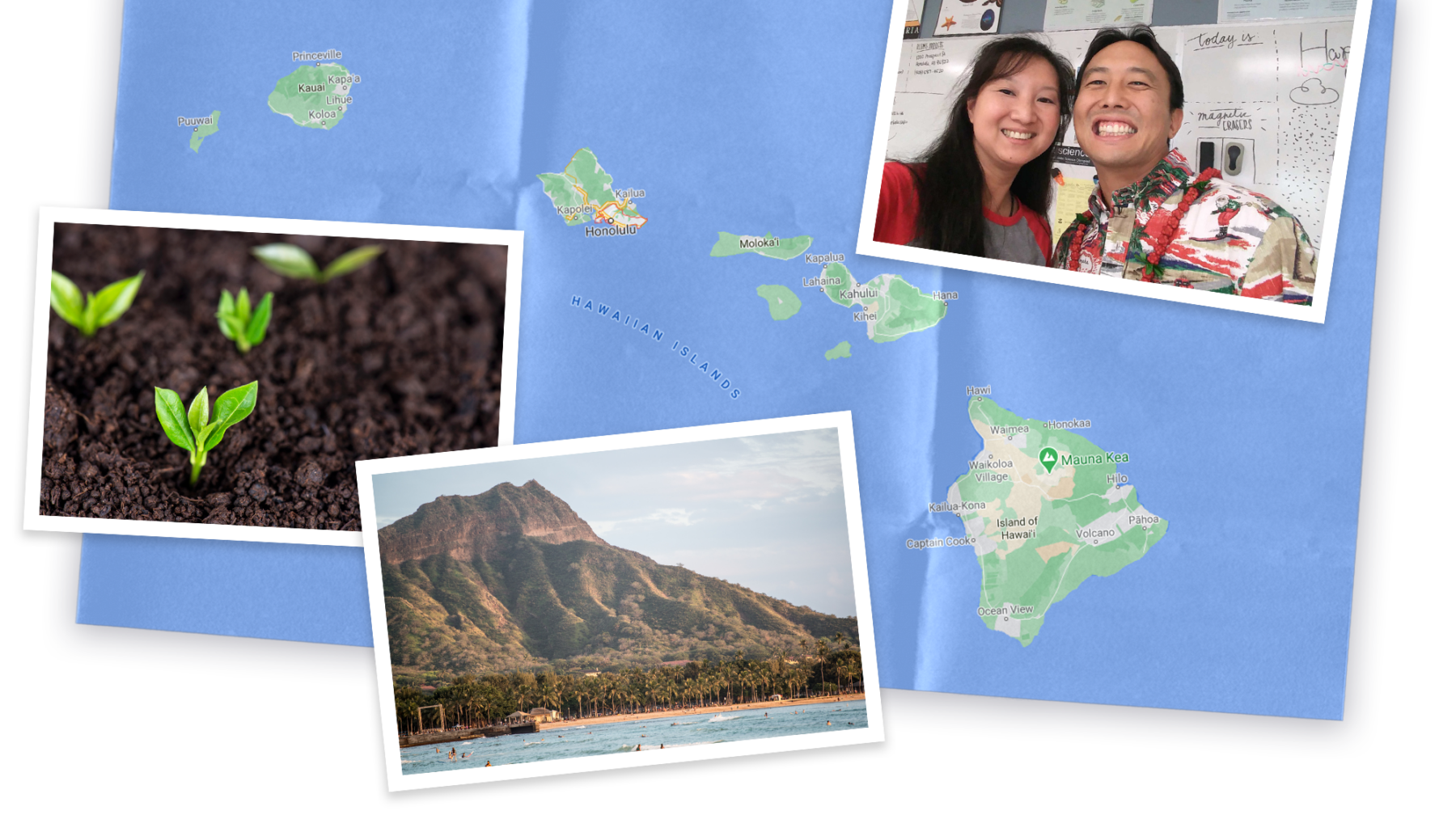
Educator and wrestling coach Ken Kakesako is finding creative ways to pin down success for his fellow Hawaiians.
Photos courtesy of Ken Kakesako and from iStock
Pinning down success
“You win sometimes, you lose a lot, and you learn from every experience.”
Ken Kakesako, A.B. ’04, cares deeply about giving his fellow Hawaiians the same strong start in life that helped him thrive.
Born and raised in the Manoa neighborhood of Honolulu, Hawaii, Kakesako became an Eagle Scout, a two-time state champion wrestler, and a top student. By the time Kakesako got to Harvard College he was already looking for ways to give back and help other kids succeed.
“I started off just volunteering, not thinking I was going to get that into it,” Kakesako said of his time at Phillips Brooks House Association’s Keylatch Summer Program, a camp serving children in Boston, “but ended up co-directing the program my junior/senior year. I think that’s where it all sort of started, where I was thinking education, or at least doing something with kids, was something that I wanted to do.”
After graduating from Harvard in 2004, Kakesako worked in Japan as an assistant English language teacher. After a few years he returned home to Hawaii to work as a legislative aide and then for the state’s Department of Agriculture, ultimately as deputy director. While in that department, Kakesako helped local schools from a distance, supporting programs like the Hawaii School Garden Task Force, which helped students grow their own food.
At the same time he was starting to plan a new career that would let him directly improve lives in his community: teaching. “In Hawaii, in order to teach, you need a license, so I was doing night school to get my license … and a master’s in education,” he said.
After finishing his graduate degree, he took the leap and began teaching science at Robert Louis Stevenson Middle School in Honolulu in 2016.
“Teaching is just so much more rewarding, as far as seeing students get excited about something real that’s not just in their textbook,” he told The Honolulu Star-Advertiser. “All of the energy they come to class with is what I can feed off of.”
Kakesako brought innovative approaches to his classroom, including a “parking lot” on the board, with questions that he didn’t know the answers to. He encouraged the students to take learning into their own hands, and then come back and teach the group.
“I was very quick to acknowledge with the students, ‘Hey that’s a great question, I actually don’t know that answer. Can you help us find that answer?’”
Beyond teaching, he used his experience in government to help bring some needed funding to after-school programs. He collaborated with local high school students to bring a STEM program, Responsible Open-Minded Operations Through Science (ROOTS), to the middle schoolers.
“[The high school students] came once a week to provide leadership classes through a STEM project. The project they decided to do was build planters within a school garden … a grid of planters that could be used for science.”
He also leaned into his talents and created a wrestling club, a sport that was active in private schools around Oahu, but was lacking in public middle schools.
“For me, I’ve always found that wrestling is one of those sports that, I believe, natural talent is less important than the amount of work you put in. And even if you aren’t successful in the sense of winning tournaments, I’ve always found that you learn a lot about yourself through wrestling,” he said.
His efforts didn’t go unnoticed. In his third year teaching, Kakesako was named a 2018 Milken Teacher of Promise, a prestigious award that highlights educators who demonstrate excellence during their first six semesters in the classroom.
And then, in January, Kakesako saw an opportunity to create even larger change and bring a number of his experiences to bear for even more students.
“I’m now in the state office,” Kakesako said about his new position as institutional analyst in Hawaii’s office of strategy, innovation, and performance. “I’m still in the Department of Education, but now in their policy shop, leveraging my experience as a teacher and with state government. Our main job is to advocate for policies for Hawaii’s Department of Education.”
Kakesako said his path toward a career in education has led through some unexpected twists and turns, but it has also allowed him to better understand his community and their needs.
“It does make things a little more hectic sometimes,” he said. “But I find that it really broadens the [type of] people I run into. I meet a lot of different people and get a lot of different life experiences. And I think it’s kind of led me on this interesting path.”
This story is part of the To Serve Better series, exploring connections between Harvard and neighborhoods across the United States.




